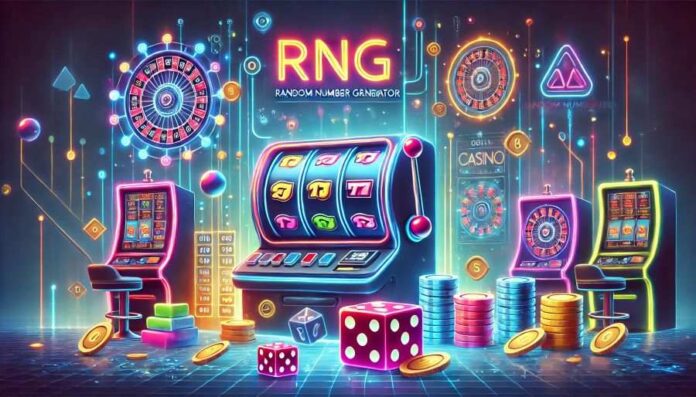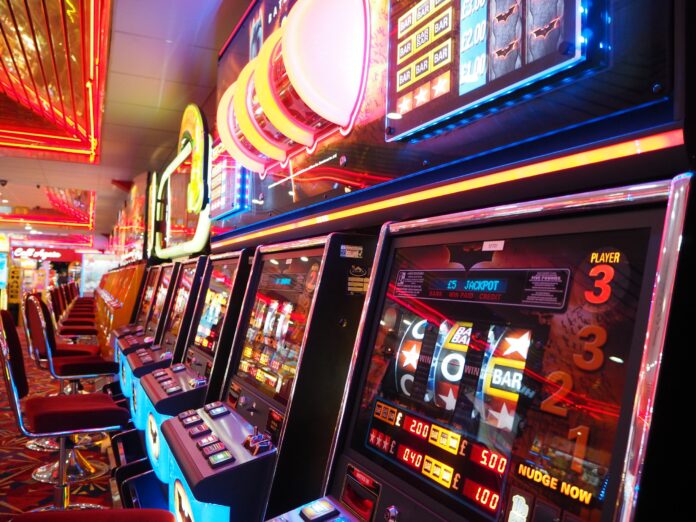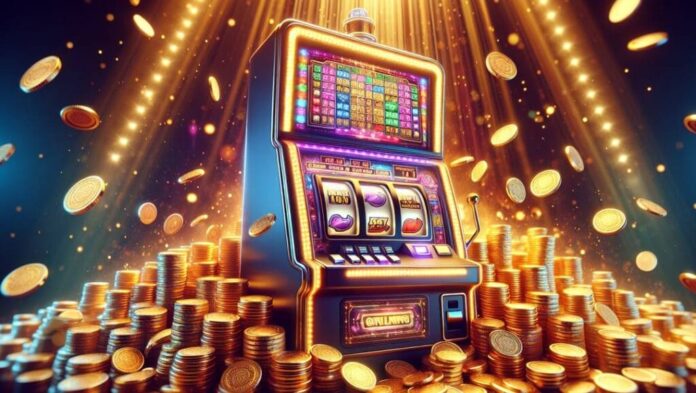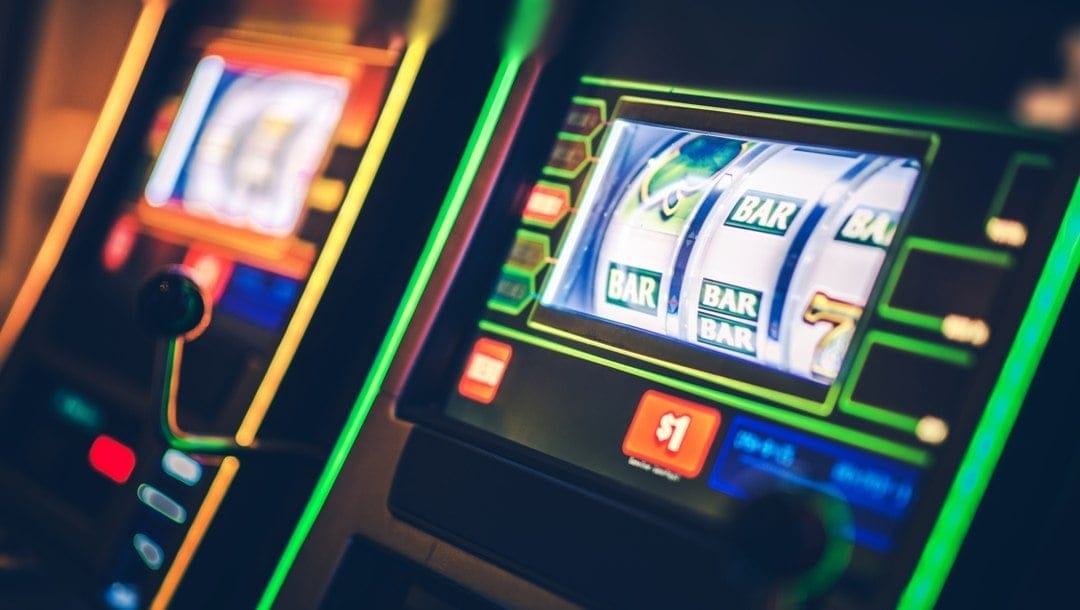Slot machines have fascinated people for decades. They light up the casino floors, drawing attention with their flashing lights, catchy sound effects, and promises of life-changing jackpots. But an enduring question persists: are slot machines truly random? Or is there more to the story?
Modern Slot Machines and RNGs

Modern slot machines like those at Betflik casino rely on Random Number Generators (RNGs), which serve as the core of their functionality. These are complex algorithms designed to ensure that outcomes are unpredictable and unbiased.
The RNG is constantly generating numbers, even when the machine is idle, cycling through thousands of possibilities every second. When the spin button is pressed, the RNG selects the most recent number to determine the result.
This process happens so quickly that even the slightest delay in pressing the button could lead to a completely different outcome.
The Illusion of the Reels
The spinning reels visible on the screen are primarily for visual effect, adding an engaging layer to the gameplay. They create the appearance that the player has some control over the outcome, even though the result is already decided the moment the button is pressed. The alignment of the reels is programmed to match the RNG’s chosen outcome, reinforcing the illusion of randomness.
Fairness Versus House Advantage
RNGs and Fair Outcomes

The use of RNGs ensures that each spin is independent, providing a fair playing field for all players. However, fairness in this context doesn’t equate to equal chances of winning for players and the casino.
Slot machines are programmed with a Return to Player (RTP) percentage, which guarantees the casino a profit over the long term. This calculated advantage is essential for the sustainability of gambling establishments, while still allowing for individual wins in the short term.
Key Concepts to Understand
- Return to Player (RTP): RTP is a percentage that indicates the proportion of total wagers a machine is programmed to return to players over time. For example, a machine with a 96% RTP will theoretically return $96 for every $100 played.
It’s important to remember that this figure applies over a vast number of spins, not individual sessions. Players may experience significant variance during shorter play periods.
- Volatility: Volatility measures the frequency and size of payouts a slot machine offers. High-volatility slots are designed to pay out large sums but do so less frequently, often appealing to risk-takers.
Conversely, low-volatility slots provide smaller, more consistent payouts, catering to those who prefer steady, incremental wins. Together, RTP and volatility determine the overall player experience and the likelihood of winning in the short term.
The Psychology of Slot Machines
Engaging Design
Slot machines are meticulously designed to capture attention and maintain interest. Bright colors, captivating animations, and immersive sound effects work together to create an environment that feels rewarding, even when losses occur.
Every element is carefully crafted to keep players engaged for as long as possible. The goal is to create an experience that is as entertaining as it is enticing, drawing players back again and again.
The Power of Near Misses
Near misses occur when the symbols on the reels appear just shy of a winning combination, such as a jackpot symbol landing one position above or below the payline.
While near misses don’t result in a win, they trigger a psychological response that makes the outcome feel tantalizingly close. This effect stimulates the brain’s reward system, encouraging continued play in the hope that a big win is just around the corner.
Combined with sensory elements like celebratory sounds and visual effects, near misses reinforce the urge to keep spinning, despite the lack of actual wins.
Common Misconceptions About Slot Machines
The Myth of Hot and Cold Machines

Many players believe that a machine on a winning streak is “hot,” while one that hasn’t paid out is “cold.” In reality, every spin is completely independent of previous outcomes, thanks to the RNG.
The odds of winning remain constant regardless of past results. The perception of hot and cold machines arises from the human tendency to find patterns in randomness, a psychological phenomenon known as the gambler’s fallacy.
This misconception often leads players to make irrational decisions based on perceived trends that don’t actually exist.
Why Casinos Always Have the Edge
Built-In Advantage
Slot machines are programmed with a house edge, ensuring that casinos remain profitable over time. The house edge is a mathematical certainty, embedded in the game’s design through RTP and payout structure.
While individual players may win big in the short term, the overall system guarantees the casino’s long-term profitability. This balance allows casinos to maintain their operations while still offering exciting opportunities for significant payouts.
How Wins Happen
Big wins occur due to the variance built into slot machine algorithms, which are designed to create occasional large payouts. These payouts are random but balanced against the machine’s overall profitability.
The rare but substantial rewards keep players invested, creating memorable experiences that encourage repeat play. At the same time, smaller wins are strategically placed to maintain interest and engagement.
Strategies for Playing Responsibly
Choose High RTP Machines

Selecting machines with a higher RTP increases the chances of receiving a better return over time. While RTP doesn’t guarantee immediate wins, it provides a general sense of the game’s fairness and potential profitability.
Checking the RTP beforehand allows players to make more informed decisions and choose games that align with their preferences and risk tolerance.
Set Limits
Establishing a budget before playing helps prevent overspending and ensures a more enjoyable experience. Once the budget is reached, it’s crucial to walk away, regardless of outcomes. Setting time limits is another effective way to maintain control, ensuring that play remains an entertaining activity rather than a compulsive one.
Play for Entertainment
Viewing slot machines as a form of entertainment rather than a means to make money helps maintain a healthy perspective. Wins should be seen as a bonus, not an expectation. By focusing on the enjoyment of the experience, players can approach slot machines with a more balanced and mindful mindset, enhancing the overall experience.
Closing Thoughts
Slot machines combine randomness, design, and psychology to create an engaging experience.
While the RNG ensures fairness in determining outcomes, the house edge guarantees long-term profitability for casinos. For players, understanding the mechanics and psychology can lead to a more enjoyable and informed approach.
Though luck plays the biggest role, knowing how slot machines operate can make the spinning reels feel a little less mysterious and a lot more fascinating.







